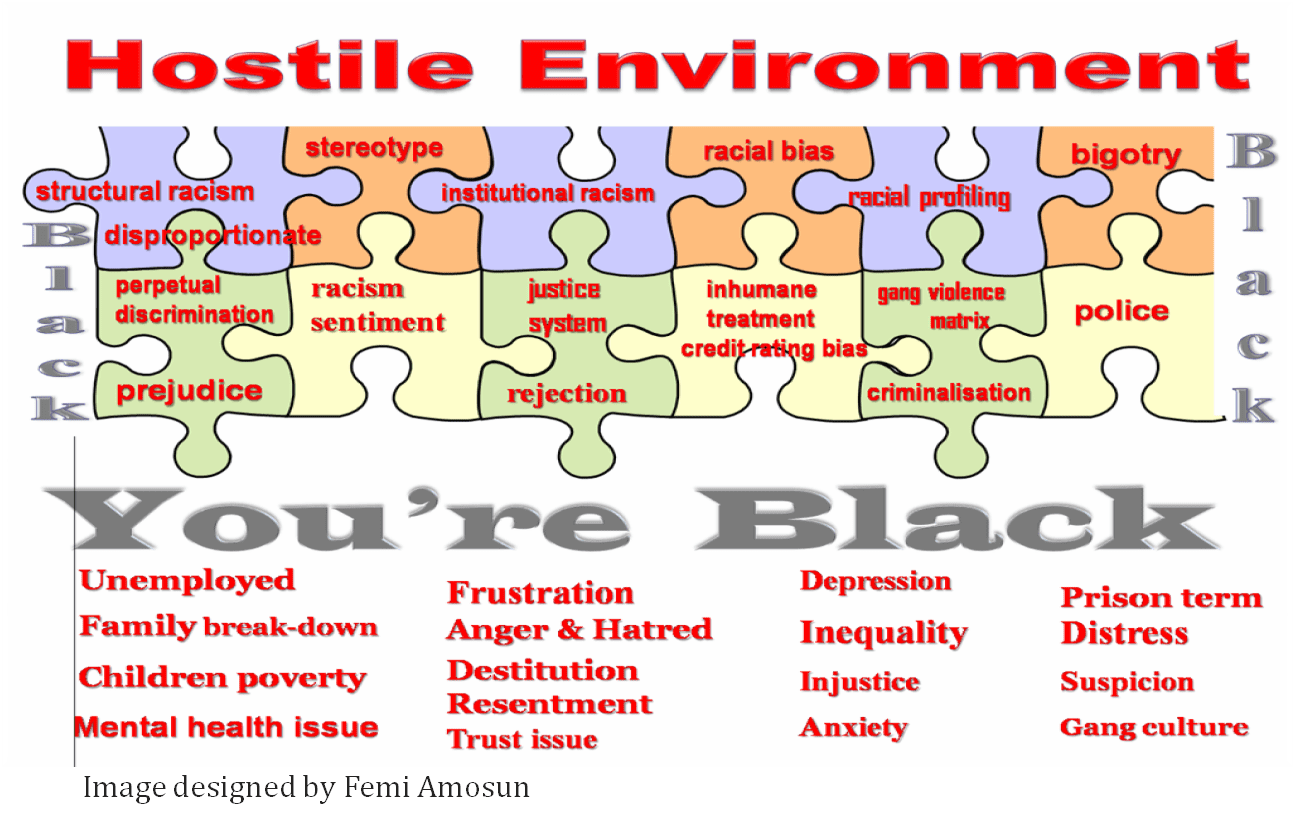Global Issues
Rejoinder: Why I Removed My Nigerian Name From My CV; UK-Based Job Seeker Reveals – Inein Victor Garrick -By Femi Amosun
ore than unconscious bias, but rather tantamount to racial undertone, an unspoken attitude about deep-seated discrimination, acute unfairness, and lack of opportunities for black people in the British society.

‘I changed my Nigerian name and suddenly I started getting job interviews’
The above allusion published on the platform of Mirror.co.uk (9 Feb 2022 ) and credited to a fellow Nigerian, Inein Victor Garrick, who resides in the United Kingdom is another misconception and impetuous assumption that changing one’s name is an automatic ticket to job opportunities in the UK. Such assertion is similar to an unambiguous statement that River is the liquid form of erosion, when we all know that a river is the combination of natural rivulet and rainwater. Interestingly, Inein Victor Garrick mentioned “unconscious bias” as the main barrier he faced whilst applying for jobs. The prevailing issue is deeper than mere unconscious bias. The barriers are structural racism and discrimination. Racism by individuals and informal social groups are governed by behavioural norms that support racist thinking and fuel active racism. This is the ugly reality confronting the black and BAME (Black, Asian and Minority Ethnicity) communities in the United Kingdom.
As a Commonwealth citizen who have lawfully studied and legally working and living in the UK for many years now, l have experienced all form of racism; from racial profiling by the Police to been thrown banana skin on the street of UK to racist attitude perpetrated by some racist neighbours.
According to the Mental Health Foundation (UK), “In England and Wales, nearly one in five of us come from a BAME background. Racism, stigma and inequalities can affect the mental health of people from BAME communities” Family breakdown leading to uncultured and uncouth children; Single mother and parenthood; Frustration; Poverty; Loneliness; Mental health issues etcetera are some of the negative impacts of structural racism.
In 1998, l wrote a piece in a professional Magazine (Ambassador, a newsmagazine for MBAs in the UK) and questioned the culture of discrimination and racism in job opportunities, recruitment and training. The article provoked two Cardiff University Business School researchers who sent two job application letters to the top 100 Companies in the Financial Times 1,000 list. One of the letters was signed Andrew Evans and the other signed with a foreign name. The fictional Mr Evans and the fictional other applicant were both MBA holders and had similar CVs. The researchers discovered that Andrew Evans received more favourable response whilst the other applicant with foreign name was either ignored or received less favourable response. Following the findings, the Equality and Human Rights Commission says that Discrimination in employment is “alive and well”
In 2018, a U.N Special Rapatuer Professor Philip Alston undertook an official visit to the United Kingdom of Great Britain and Northern Ireland to conduct an extensive study. In 2019, the Special Rapatuer presented his comprehensive report to the U.N Human Rights Council and concluded that The UK’s Social safety net has been “deliberately removed and replaced with a harsh and uncaring ethos”
We have also witnessed the atrocious, repugnant, reprehensible, inexcusable and shameful treatment of the Windrush generation through the “Hostile environment Policy” actively pursued since 2016 by the government. I should also accentuate that the Immigration Hostile environment Policy would appear to give impetus (or legitimacy) to officials, public institution employees, private employers, bank officials, private Landlords and others who may harbours racism sentiment the golden opportunity to unleash their poisonous venom. What is most astonishing is that despite the tremendous work done by the Equality and Human Rights Commission and other notable Charities to tackle and suppress discrimination and racism in this country, yet the Government deemed it fit to introduce specific Legislation and actionable Policy that systematically ruin black peoples’ lives. In addition, there are a plethora of studies and reports which highlight discrimination and racism as the fundamental barriers underpinning economic inequality and poverty in the UK.
To put all these into context, the job discrimination experienced by Inein Victor Garrick is far more than unconscious bias, but rather tantamount to racial undertone, an unspoken attitude about deep-seated discrimination, acute unfairness, and lack of opportunities for black people in the British society. So let us not delude ourselves or allow sentiment to impair our understanding of the historical and deep-seated discrimination and racism environment.
Femi Amosun writes from London England UK










